University of Iowa shared governance bodies elect new leadership each spring semester. Together, Faculty Senate, Staff Council, UI Student Government (UISG), and Graduate and Professional Student Government (GPSG) shape policies and inform decisions that affect Iowa’s roughly 30,000 students and 18,000 faculty and staff. They represent their constituents to the UI administration; the Board of Regents, State of Iowa; the public; and state and federal government.
Read about the skills and experience these leaders bring to their positions and what they aim to accomplish this year.
Faculty Senate
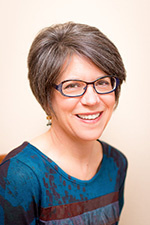
Sandra Daack-Hirsch, president of Faculty Senate, is associate professor in the College of Nursing and director of the nursing PhD program.
Joseph Yockey, vice president of Faculty Senate, is professor and Michael and Brenda Sandler Faculty Fellow in Corporate Law in the College of Law.
Learn more about Faculty Senate.
What experiences inform your role as a shared governance leader?
Daack-Hirsch: I am an associate professor in the College of Nursing. I also direct the PhD program. From 2012–18, I served on Faculty Senate. I completed my term as Faculty Senate vice president in April 2019, and I’ve been president since then. I have served in various leadership roles in my professional organizations as well as for the Iowa Department of Public Health.
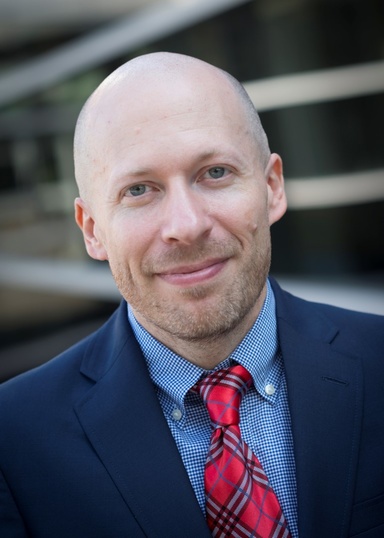
Yockey: I’ve been on the law school faculty for nearly 10 years, and I’ve served on Faculty Senate and Faculty Council since 2015. Last year, I was elected to serve as Faculty Senate secretary. This year, as vice president, I will be participating in the Big Ten Academic Alliance (BTAA) Academic Leadership Program, which is designed to enhance faculty members’ leadership and managerial skills.
What are important issues facing your constituents, and how do you plan to address them?
From new administrative hires to the new university budget model, there is a lot of change happening on campus. We see our role as ensuring that faculty voices are heard and respected on every new issue or program that arises. For example, with the launch of a new benefits program, we will be keeping a close eye on it to ensure that there are no adverse effects on faculty interests. Likewise, we look forward to playing an active role in new initiatives relating to diversity, equity, and inclusion, particularly in the context of faculty recruitment and retention.
What can we expect from Faculty Senate in the coming months?
The campus community can expect communication, transparency, and diligence from the senate, as well as a forum for thoughtful and vigorous deliberation on how best to advance the university’s teaching and research missions. The senate officers also will continue to coordinate reviews of central administrative units. We expect to publish our review reports for the Office of Finance and Operations and the General Counsel’s Office soon, and our next review will focus on the Office of the Vice President for Medical Affairs.
Staff Council
Michael Weaver, president of Staff Council, is assistant to the vice president for research in the Office of the Vice President for Research.
Heather Mineart, vice president of Staff Council, is assistant to the DEO in the Department of Physics and Astronomy.
Learn more about Staff Council.
What experiences inform your role as a shared governance leader?
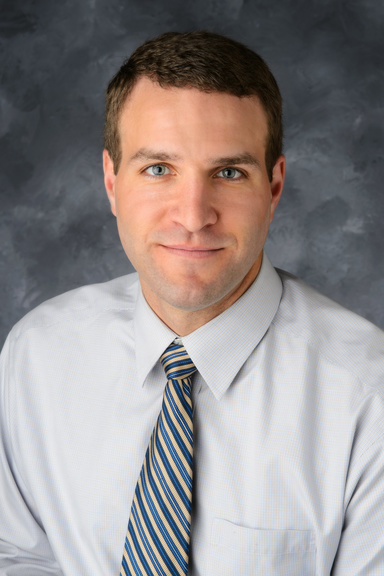
Weaver: I’ve been an Iowa Citian since I was 4 years old, and both of my parents worked for the University of Iowa for the entirety of their professional careers as P&S and Merit Staff (my dad still works for Iowa), so I grew up in the university community. I moved back to Iowa City and began my own career at Iowa in 2011, so for most of my life, I have been closely connected to the University of Iowa and the issues that affect its staff.
Since 2013, I’ve worked in the Office of the Vice President for Research and have been involved with institutional issues and decisions that affect an entire organization, most notably, the new budget model. I was humbled when asked if I would consider running for Staff Council president and am extremely proud of the current council, especially the team of Executive Committee members and officers who will help me through the year. I think we have some ambitious goals, and I really look forward to seeing what we can accomplish.
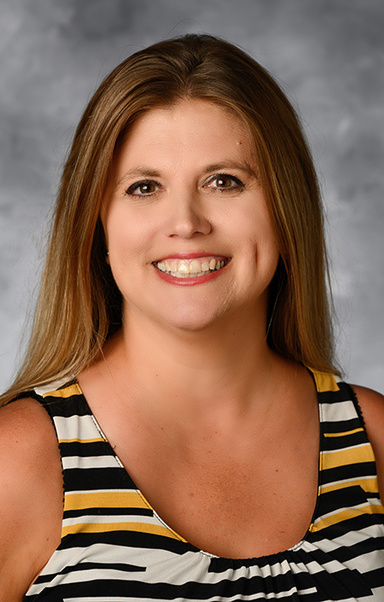
Mineart: As a member of the Iowa community for more than 18 years, serving in capacities as a merit staff member, a professional/scientific staff member, and joining UI shared governance has given me the experiences needed to inform my position as vice president/president-elect. I take deep pride in being a part of this great institution, and I got involved with UI Staff Council because I strongly believe in the mission of the university. I know that shared governance can be an essential institutional asset in filling that mission.
What are important issues facing your constituents, and how do you plan to address them?
Weaver: First and foremost on our minds is the rollout of the new health care plan. As a Staff Council, we want to make sure that there are adequate educational opportunities for staff across campus to completely understand any potential ramifications of their choices during open enrollment. Additionally, we are already working on ideas to make sure that any cost savings realized from the new plan are reinvested in ways that directly benefit university employees. Other issues that we continue to work on are employee compensation, tuition reimbursement, and supervisor training.
A particular focus this year and going forward will be on aligning our work with the Diversity, Equity, and Inclusion Action Plan and the work of the Division of Diversity, Equity, and Inclusion. Staff Council realizes that this is not the job of one office or committee, but a campuswide commitment to improve the university’s climate.
Finally, we are in the process of putting together a working group of merit staff members to discuss how the merit classification can be better represented through shared governance.
Mineart: Some of the important issues facing staff include budget cuts, workloads, salary policy, and employee benefits, which have always been at the forefront of staff members’ minds. Staff Council will continue to play a critical role in promoting collaboration, diverse perspectives, transparency, and staff recognition by continuing to partner with other shared governance groups, such as faculty and students as well as upper administration, so our voices are included in the discussion of important issues and major decisions affecting staff.
What can we expect from Staff Council in the coming months?
Weaver: Along with the initiatives outlined above, I hope that our constituents will see a continued commitment to communication and that staff at Iowa feel empowered to express their thoughts and opinions to their councilors. We can’t accomplish nearly as much as a group of 55 councilors without buy-in and input from those we represent. Staff should know that our meetings are open and we welcome and encourage all staff to attend. Finding a bigger room to in which to hold our meetings would be a great problem to have.
Mineart: You can expect Staff Council to continue its efforts in representing staff across campus. Staff Council President Mike Weaver is in the process of establishing a focus group to learn more about how merit staff would like to be involved in Shared Governance. Since the changes to Iowa’s collective bargaining laws, merit staff have had union representation in salary negotiations with the state, but very limited representation with regard to their benefits and other policy decisions that affect them. For example, merit staff sat on the Health Benefits Review advisory committee, but there are no merit staff on the Funded Retirement and Insurance Committee, a standing committee that advises on benefits, and only one merit, supervisory exempt/confidential (MSEC) staff member sits on Staff Council. We would like to facilitate a pathway for merit staff to have a greater voice in Shared Governance on campus.
UI Student Government (UISG)
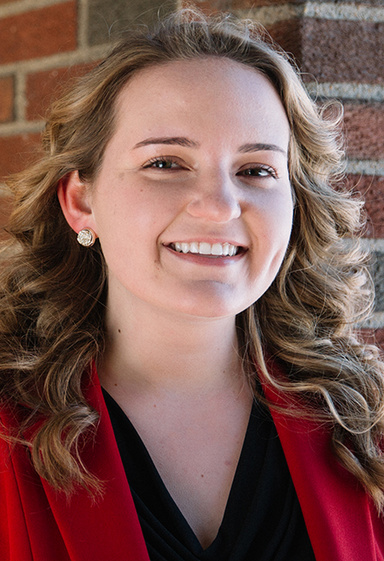
Noel Mills, UISG president, is a fourth-year undergraduate from Waterloo, Iowa, majoring in environmental policy and planning and engaged social innovation with a minor in rhetoric and persuasion.
Sarah Henry, UISG vice president, is a fourth-year undergraduate from Johnston, Iowa, majoring in ethics and public policy with minors in political science and Spanish.
What experiences inform your role as a shared governance leader?
We’ve been active on campus in Residence Education, Fraternity and Sorority Life, and UISG in addition to our experiences working off-campus. Our involvement in and outside of UISG has given us perspective on how our organization can do better to improve student life at Iowa.
What are important issues facing your constituents, and how do you plan to address them?
There are countless issues facing students at Iowa, but the most alarming disconnect is between students in need and the resources available to them. UISG funds numerous services to help students afford college, stay well in college, and be successful after college. However, students are largely unaware of these resources—and that’s on us. We’re committed to getting students the help they deserve and filling in any gaps we find along the way.
What can we expect from UISG in the coming months?
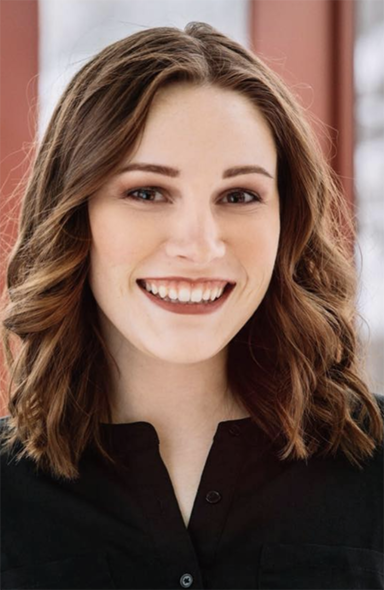
We campaigned with the promise to make UISG aim higher and work harder for students. Thus, Hawkeyes can expect to be communicated with more intently, represented more accurately, and advocated for more effectively. Monthly newsletters, bolstered recruitment efforts, and increased lobbying are at the top of our list. As we observe our centennial this year, we look forward to celebrating the past as well as working with students to lay the groundwork for an even better future.
Graduate and Professional Student Government (GPSG)
Dexter Golinghorst, president of GPSG for the second year, is in the JD/MHA program. He finished his law school coursework last year and is in the second year of his master of health administration (MHA) coursework. He is from Maysville, Iowa.
Thomas Pak, vice president of GPSG for the second year, is a third-year medical student in the Roy J. and Lucille A. Carver College of Medicine and a third-year PhD student in the Interdisciplinary Graduate Program in Neuroscience. He is from Clive, Iowa.
What experiences inform your role as a shared governance leader?
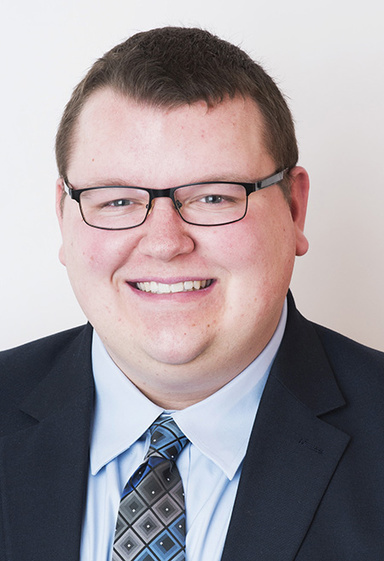
Golinghorst: One of the major influences in how I run GPSG and engage as president is the amount of time I have spent on campus. This is my seventh consecutive year as a student on campus; I graduated with a BA in political science and economics in 2016 and will finish the JD/MHA program this year. I was an executive in UISG as an undergrad and focused on governmental relations work with the state legislature and Board of Regents. I also worked in the Office of the President during the tenure of three presidents (Sally Mason, Jean E. Robillard, and Bruce Harreld) and so I have seen different leadership styles and priorities on campus as well. This helps me see the bigger picture and choose how to go about addressing some of the issues we have on campus. I’ve also been able to be on both sides of a lot of other administrative changes, and so it is helpful to have that context when new leaders join our campus.
As part of being a law student, I have spent a lot of time revisiting policies and procedures of GPSG and making changes as necessary. I think my law school background also helps me to feel confident in questioning decisions and trying to work through different outcomes that others maybe haven’t considered.
Pak: GPSG represents and advocates for a diverse array of graduate and professional students. It is a significant responsibility that involves communicating with students, faculty, politicians, and the community.
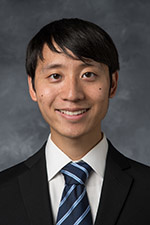
As an MD/PhD student, I am personally invested in both the graduate and professional students of our campus. I have previously interacted with GPSG as a leader of multiple student organizations. These experiences revealed the issues facing the student body, along with what student organizations need from GPSG.
In addition, I have experience in political advocacy with medical societies, including Iowa Medical Society and the American Academy of Pediatrics. I have direct experience for my role having served as vice president of GPSG last academic year.
What are important issues facing your constituents, and how do you plan to address them?
Golinghorst: We are focusing on several important issues this year: mental health services, campus climate and inclusion, mentoring, and affordability.
We are addressing these in a lot of different ways depending on the issue. We are working with administrators, student leaders, and constituent groups in each area to find the best way to partner with them on areas in which they are experts. We are also constantly working with legislators, regents, and other community members to communicate different policy needs and ideas that could improve campus.
We are also working on ways to make GPSG more accessible and representative through new communication efforts, a website redesign, and open conversations with different constituents.
Pak: The two pressing issues of our student body are supporting the well-being and success of our students. Controlling the cost of graduate and professional school addresses both issues. To control costs, we have to advocate to elected officials to give more state funding to higher education. We also have to advocate to the Board of Regents, State of Iowa, for more transparency and accountability of tuition hikes. For the well-being of our students, we are advocating for improved accessibility to counseling services, whether that be having in-house counselors for each college or increasing staff in the counseling center. Professional students were left out of the National College Health Assessment survey. We can’t fix what we don’t know is broken. GPSG will push for professional student eligibility for the survey. GPSG also will continue to help fund the food pantry to address food insecurity in our student body.
For student success, we have multiple measures in place. Our GPSG provides more than $70,000 annually in professional development grants that can be used for research, travel to conferences, or service projects. We also help fund the clothing closet, which provides student access to quality professional clothing at no cost.
What can we expect from GPSG in the coming months?
Golinghorst: In the coming months, GPSG will be meeting in regular session and beginning work through our committee structures. We have committees for diversity, equity, and inclusion; interprofessionalism; health and safety; government relations; and sustainability. Each of these committees is focused on different projects to achieve goals in these areas.
We will be passing our budget and allocating funds to our grants program, which is widely popular across colleges and programs, meeting with legislators and the regents, and collaborating with our counterparts at Iowa State University and the University of Northern Iowa as much as we can.
We will also be launching a new newsletter and social media update platform to help students stay in touch with us and our work.
Pak: I am enthusiastic about Friday Night Vibes, led by GPSG interprofessional chair Megan Lindmark, a second-year graduate student in the civil and environmental engineering program. Friday Night Vibes is a social event open to all graduate and professional students. One of the strengths of Iowa is that we have a diverse set of graduate and professional students. However, as an MD/PhD student, I’ve seen how easy it is to become isolated in your particular school and these events help connect our graduate and professional students.